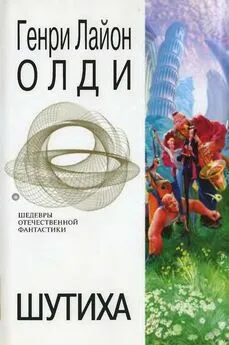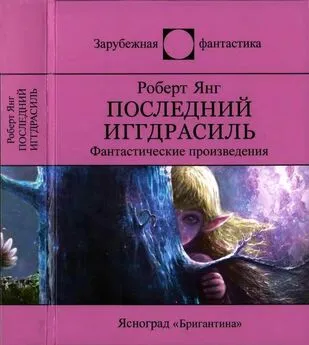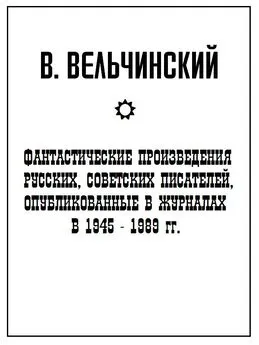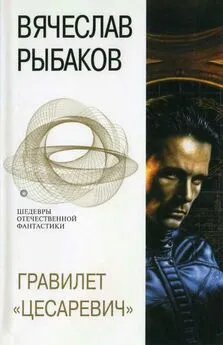Владимир Орловский - Машина ужаса [Фантастические произведения]
- Название:Машина ужаса [Фантастические произведения]
- Автор:
- Жанр:
- Издательство:Leo
- Год:2018
- ISBN:нет данных
- Рейтинг:
- Избранное:Добавить в избранное
-
Отзывы:
-
Ваша оценка:
Владимир Орловский - Машина ужаса [Фантастические произведения] краткое содержание
Машина ужаса [Фантастические произведения] - читать онлайн бесплатно полную версию (весь текст целиком)
Интервал:
Закладка:
And now dead silence reigned as before, broken only by the monotonous humming of the transformer.
Flinder almost doubted his own eyes. This meant, that the problem was solved at last. The key to the mysterious treasure was found; an unparalleled victory was won.
Impotently and slowly he dropped into his armchair, in a sense shocked by the achievement. After ten years of persistent work, he had apparently reached his goal. It was difficult for him to realize it all at once. He sat steeped in a confused state of semi-forgetfulness and semidelirium.
The door clicked; apparently, Hinez, one of the assistants, finished his work and left. Flinder did not notice him. He remained under the influence of the excitement that possessed him, trying to visualize the dizzy perspectives that were being opened to mankind. An insignificant dot of matter will yield enough energy to drive ocean liners, and ponderous trains, for many hours. Millions of millions of horse-power! The end of the struggle for energy! We are the masters of energy!
Thus, for about a half an hour Flinder remained in his semi- dreaming state, which completely enthralled his mind. When he finally bent over the eyeglass of the microscope again, that which he saw there was so unexpected, that he uttered a cry.
He no longer saw the separate fiery lines or the volleys of rays; but the Whole circle was enveloped in a raging sea of fire; flaming vortices circled and danced right and left and all along the current stream. Flinder instinctively grabbed hold of the current control lever and shut off the power. The transformers stopped and the dead silence that hovered in the room, filled his heart with a longing premonition.
The scene under the microscope had changed very little. The fiery sea continued its rage, but no longer in one direction. The whirls rotated, collided and scattered in all directions in utter chaos. Flinder stretched out his hand to the switch and lighted up the laboratory. Everything stood in its place; the apparatus, the retorts, the flasks and the insulators with their ivory fingers, and the switches stuck out from the walls and ceiling; the windows were darkened by night shadows and at the right stood a bright, reddish star, apparently, Arcturus. Everything about was simple, familiar and comprehensible.
What was it, then, that had frightened him so? The foolish play of his high-strung nerves. Simply, looking down upon this phenomenon, still new to him, he recalled Deriugin’s recent phrase, in the words of Aston: “The research work into the inner-atomic energy, is like playing with fire on top of a barrel of gun-powder.” And it appeared to him, that this very minute the force he himself had just freed, would crush into fragments the laboratory and everything about it. What nonsense! Here he has stopped the work of the apparatus and nothing at all happened. Apparently, the process, once begun, continues by itself. So far, so good! The only question to be decided on now is, how to utilize this new energy without wasting it without purpose?
He now examined the microscope. Under the object- glass gleamed a bright dot, discernible with the naked eye. Bending over closer, he convinced himself, to his great surprise, that the glass tube had melted away and the tiny pale-blue star quivered without the apparatus, at the brass mounting. An unpleasant chill again ran up his spine.
Mechanically he extended his hand to the glittering object, but withdrew it immediately; his fingers were burned as by a red-hot iron and his body was rocked as by a heavy blow.
And it suddenly appeared to him that the glittering dot was growing in size before his very eyes; that it was not a dot any more; that it had become a smal ball, the size of a pea. He wiped his eyes and looked up again; he felt the hair on his head rising and his forehead was covered with cold perspiration.
No longer responsible for his actions, Flinder grabbed a glass of water from the table and splashed it under the microscope. The red-hot tube burst with a whir; the fragments of glass scattered all over the floor; a cloud of steam rose with a buzz from under the fiery ball, while the ball, agitated and rocked, moved aside and perched upon the marble table, slightly quivering, as if the scant power it contained, was pulsating.
It was quite clear now that it was growing from minute to minute, slowly but surely. Flinder suddenly became conscious of the fact that his lower jaw was jumping and the teeth were chattering. He stood motionless, his hands clutching the table, his face pale as death and his eyes widely bulged. Everything was clear now.
This was a catastrophe, the kind our Earth had not yet experienced. The breaking up of the atom, which he had caused in the minute volume of gas, had ’been so energetic, and the fragments were scattered with such force and rapidity, that, when colliding with the neighboring molecules, they, in turn, broke their constituent atoms, and now the process was spreading unchecked from one place to the other, liberating the dormant power and releasing light, heat and electric radiation.
He had set free the spark which was to cause a world conflagration! And there was nothing in all the world that could avert the destruction that was to follow. Nothing! Nothing! Certainly, we are powerless to exert any influence upon the process within those microcosms not yet known to us. None, whatever! And the world was not yet aware of anything; it did not dream that here, in the quiet of the laboratory, a catastrophe had taken place — that would ultimately reduce this globe into cosmic dust. Everybody was oblivious of the impending danger! They slept, walked, ate, worked, laughed and were occupied with a million trifling matters! Yet the shadow of death had swept over our Earth…
And this he, Conrad Flinder had done; Conrad Flinder, the gray- bearded old man, to whose health the Hussar Colonel drank last night. He suddenly began to laugh, ever louder and louder, his teeth chattering, his lower jaw jumping up and down, as if it were suspended on a rubber string. He thrust himself at the door forcing it open, and rushed out in dishevelled condition. Running along the garden tracks, he rebounded from the trees, fell, rose and ran on toward the house, ceaselessly laughing…
IN bold-type captions appeared the news of Professor Flinder’s suicide in the morning newspapers. The newsboys announced this with piercing and shrieking voices, and waving their sheets, they tucked them under the arms of the passers-by. Deriugin had found out about the dreadful occurrence, while on his way to work. Flinder! Cool-headed, stone-calm Flinder, resembling a machine rather than a man!
The news stunned the engineer. He sensed in it an event more significant than could be deduced from the newspapers accounts, which ascribed the incident to a sudden' attack of mental alienation. This, they deduced from the note left by the professor and from the unintelligible phrases written therein, which, in all probability, bore witness to the chaos of his last thoughts. “General destruction!.. World conflagration!.. Aston was right… I did it… It grows larger each second…” While this was merely a string of words, the incoherent phrases produced an overwhelming impression upon Deriugin. He was shaken with fear. In these words he read of an incredible and absurd menace, which suddenly appeared to him as a possibility. He quickened his pace, jostling his way through the human tide, toward the Institute where, at the very entrance to the laboratory, he met Hinez, the assistant.
“What happened?” he inquired of the assistant who stood before the locked door. The latter shrugged his shoulders.
“I know as much as you do, colleague. At any rate, this is a colossal loss to Germany — it is almost irreplaceable.”
“A dreadful occurrence, indeed,” returned the Russian, “but I am afraid that this is not the end of it..
“What do you mean to say?”
“It seems to me that something has happened in the laboratory. Have you any idea, colleague, what special work the professor was doing there yesterday?”
Hinez suspiciously looked up at the speaker and replied reluctantly:
“I believe he was making preparations to test the newly installed apparatus, which was to accelerate the breaking up of the atoms of several gases…”
“Listen, Hinez,” exclaimed Deriugin, his voice ringing with excitement, “I understand that my words seem strange to you, perhaps brazen, but the situation is too serious for us to fret about formalities. I have been watching the work of the professor for a long time and was very much interested in it. But now, I repeat, I am afraid that some mishap has occurred there.” Hinez silently shrugged his shoulders, yet, he too felt that he was becoming affected by an incomprehensible alarm.
They unlocked the door of the laboratory. In the assistant’s room, a servant with a long iron rod, on one end of which a rag was tied, was cleaning the room. The servant welcomed the entering pair with a curt: Guten Tag. The two whisked through the room directly into the laboratory of the professor.
Hinez led the way. On the threshold of the large room he halted unwillingly and covered his eyes with his hand, blinded by the unexpected light. Behind him stood Deriugin; silent and pale as a ghost, he was contemplating the picture that lay before their eyes. Upon a large marble table, where the new adjustments were gathered, shone, with unbearable brightness, a fiery sphere the size of a man’s head. It quivered, as if it pulsated. Upon its dazzling background, bluish veins crossed themselves and everything about it was covered with a bluish mist. At the place where the sphere had touched the surface of the table, a light sizzling and crackling was heard. The room was hot and suffocating, as it is before a big storm, and a sharp smell of ozone assailed the nostrils.
Hinez and Deriugin stood like a pair of statues, not daring to move from their places nor to remove their eyes from the strange phenomenon.
“Herr Hinez,” exclaimed the surprised servant, who had followed them into the laboratory, “something is burning there!”
And before either of them had a chance to stop him, he ran over to the table and drove the end of his iron rod into the face of the fiery sphere.
A dry, loud crack followed. A dazzling spark, resembling a short lightning, flashed out at the end of the rod and the old man dropped backwards, spreading his hands and knocking his head against the hard floor. His body twisted up in spasms and remained motionless. All this took place, it seemed, within the twinkle of an eye. When Hinez rushed over to the old man, bending over him and trying to raise him up, he no longer breathed.
“Dead!” confusedly announced the assistant, retreating unwillingly and turning back his head to his colleague. Deriugin, standing at the door, repeated mechanically one and the same phrase:
“I knew it…! I knew it…!”
About ten minutes passed before the visitors regained a little of their composure. They carried out the body of the old man into the assistant’s room, and tried every means to revive him, but all their attempts failed; the unfortunate man was dead.
“What is this anyhow?” demanded Hinez, at last, when he realized the futility of their efforts.
“This,” repeated Deriugin, and the sound of his voice resembled the burst of thunder before a rainstorm, “this is a mutiny of the atoms, revolting against the man who dared to disturb them..
“You mean to say, that. began Hinez with uncertainty.
“I believe,” interrupted Deriugin harshly, “that the destruction of matter has begun and, in all probability, nothing in the whole world will be- able to check it. This old man is the first victim of the millions that are to follow.”
Читать дальшеИнтервал:
Закладка:
![Обложка книги Владимир Орловский - Машина ужаса [Фантастические произведения]](/books/1096680/vladimir-orlovskij-mashina-uzhasa-fantasticheskie-pr.webp)







![Гарри Гаррисон - Пропавший лайнер : фантастические произведения [сборник]](/books/1086200/garri-garrison-propavshij-lajner-fantasticheskie-p.webp)

